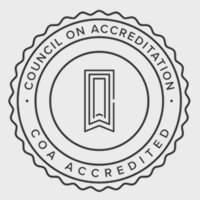For the last several decades, April has been Autism Awareness month. A time to “light it up blue” and show off the puzzle piece. This year, I encourage you to consider something else, acceptance not awareness. This April, you will find me wearing red. I will wear red for Autism Acceptance month. I will wear red to support the autistic community. Moreover, I will wear red to spark conversations about doing more.
According to the CDC, autism affects about 1 in 54 individuals and, while there are many different therapies for autism, there is no cure. It affects everyone differently, from language and communication or executive functioning to cognition or many other skills and functions. It is often overwhelming deciding what to do once a diagnosis is made.
Finding a provider is a very personal experience and should be met with many questions. What are the outcomes you are hoping to accomplish? How will you ensure my loved one and I agree with the goals and methods used? What happens if we want to stop treatment or are showing distress? How will you help advocate for us? I would want these questions answered, and I offer them to you in hopes we can all support those impacted.
But how do we show our support when society has a set of norms everyone is supposed to follow? It has not been very forgiving or accommodating to those who don’t fit the mold of “normal.” We want everyone to look and act the same way, but that is not autism. It is time we start accepting the individuality of autism and proactively work to get impacted individuals integrated into our society so we can stop relying on “awareness.” Here is a list of things you can start doing now to make positive changes for acceptance. It’s not an exhaustive list, but it is somewhere to start.
- Don’t expect eye contact– Making eye contact can be very aversive or even painful to some, so we shouldn’t force it.
- Embrace special interests– I have met children who know more about a specific topic than I could ever dream of learning (whether it be trains, elevators, or movie production companies). These interests may seem to hinder social functioning because they can become the only topic of discussion. You will be the most helpful when you allow someone to grow their interests. Special interests can turn into careers one day, or help build relationships with those who have similar interests.
- Repetitive behaviors– A large part of the diagnostic criteria for autism is repetitive and stereotyped behavior (otherwise known as stimming). This can be flapping of hands, making repetitive noises, spinning, etc. These harmless behaviors actually have an important function. They are ways our body helps us process information and regulate feelings/emotions. A neurotypical person might do things like bounce their leg, tap a pencil, or even bite their nails. In most cases, these are automatic responses, which we don’t even realize are taking place. Suppressing them could cause undue stress.
- Allow for routine- Schedules are very important and routine is necessary. Making changes without prior preparation can create a huge disruption and cause dysregulation.
- Be kind- This goes without saying, just be kind. Meltdowns happen and instead of trying to force compliance, be gentle and allow safe space for those in crisis to regulate themselves.
You can make positive change today…conduct your own research and become involved in advocacy and acceptance efforts. Listen and learn from autistic individuals, they have a lot to say if you take the time to truly listen. To learn more about how Tanager Place accepts autism, visit https://live-tanager-place.pantheonsite.io/treatment/autism-services/
Brianna Harvey, MA, BCBA, LBA , is the Autism Program Supervisor with Tanager Place.
Copyright (2021)


